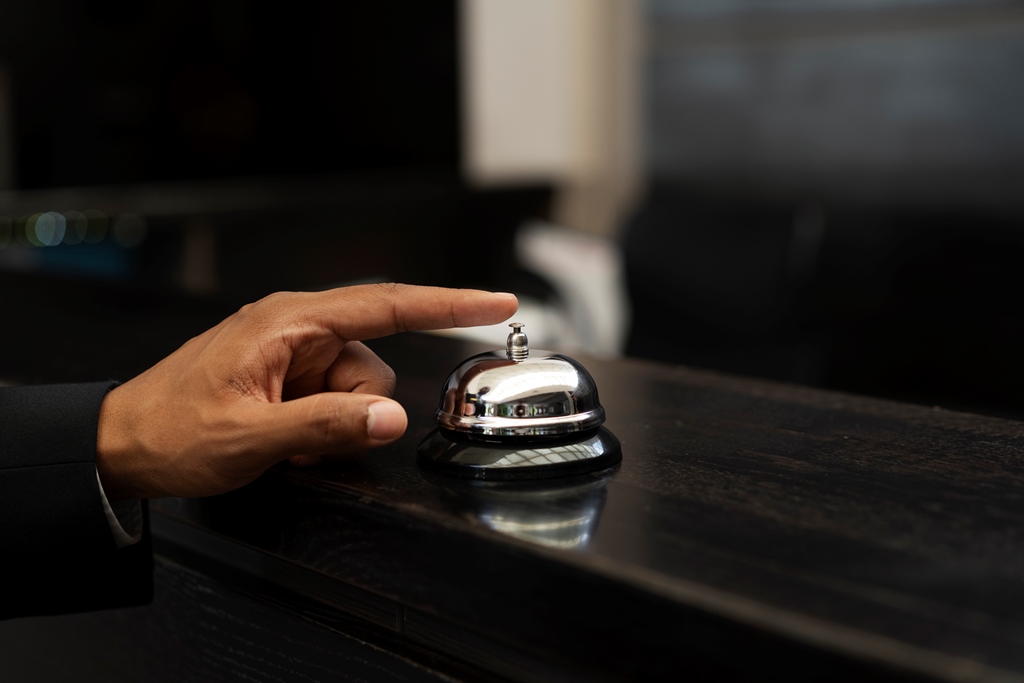Why Soft Skills Matter Most in the Hospitality Industry
When was the last time you booked a hotel without reading reviews?
Chances are, never!
In this age, online reviews shape how we perceive hospitality brands, and most often, it is not the décor or food guests talk about, but how they were treated. A warm greeting, a calm resolution to a complaint, or a thoughtful gesture can turn a regular stay into a five-star experience.
These moments are executed through soft skills, communication, empathy, and adaptability, which now matter as much as technical know-how in the hospitality industry. Soft skills are important in hospitality because they directly impact guest experience, team dynamics, and career growth.
Whether you are pursuing a hotel management course, a diploma in culinary arts, or a BHM degree, mastering soft skills is essential, as ultimately, your conduct is what keeps guests coming back and ratings soaring.
In this blog, we will explore why soft skills matter most in hospitality today and how you can build them during your education and training.
What Are Soft Skills in the Hospitality Industry?
Soft skills in hospitality refer to the practical, people-focused abilities that help one connect with guests, coordinate with teams, and remain calm even when things do not go as planned. The amalgamation of soft skills and core skills can ultimately turn an average hotel experience into a memorable one for the guests!
Let us break it down simply.
| Soft Skills | Real-world Impact on Hospitality |
| Communication | Aids in handling check-ins, guest requests clearly without any room for miscommunication |
| Empathy | Allows one to understand guest emotions, tackle complaints, and personalize the experience for guests |
| Adaptability | Aids in managing last-minute changes or sudden rushes with ease |
| Cultural awareness | Aids in catering to guests from different countries with respect |
| Teamwork | Aids in team coordination with cross-functional departments, with chefs, housekeeping, and front office, all with a single objective of guest satisfaction |
| Emotional control | Aids in keeping you calm even when things go wrong (and they sure do many a time!) |
Key Benefits of Soft Skills in Hospitality
- Helps retain guests, increasing customer loyalty and improving brand image.
- Provides a competitive edge in job interviews
- Increases the chances of promotion in management roles
- Opens up global opportunities due to an increased cultural awareness and understanding.
How to Develop Soft Skills During a Hospitality Course
- Step 1: Pick the right institute
Choose from top hotel management colleges offering personality development modules.
- Step 2: Look for experiential learning
Programs like BHM, HM course, and diploma in hotel management often include role-plays, mock guest interactions, and teamwork simulations.
- Step 3: Intern, learn, and observe
Seek internships to develop problem-solving and crisis management.
- Step 4: Reflect and practice
Continue seeking feedback for your awareness and improve the areas where you lack expertise
- Step 5: Build beyond the classroom
Engage in public speaking clubs, guest handling events, and volunteer tasks.
What to Look for in a Hospitality Course Today
While selecting your hospitality degree, ensure that you check for these core aspects to future-proof your career in the industry.
| Feature | Why it matters |
| Personality development workshops | Builds guest-facing confidence |
| Communication & etiquette training | Sharpens clarity and hospitality behavior |
| Live guest simulations | Real-time problem-solving exposure |
| Internships in luxury properties | Builds adaptability and professionalism |
| Team collaboration modules | Enhances leadership and coordination |

How Soft Skills Impact Your Career in Hospitality
Within the hospitality industry, your skills and industry knowledge can land you the job, but how you behave under pressure, how you speak to people, and how you lead a team are what can help you grow further and thrive in the industry.
With soft skills, you can –
- Build strong relationships
Be it guests or team members, people trust and remember those who listen, understand, and respond kindly.
- Stand out for global opportunities
Top hotel brands and international chains look for people who can work with different cultures and remain respectful and confident.
- Grow faster into leadership roles
In hospitality, the best team leaders and managers are not always the smartest but possess a high emotional maturity and know how to handle people well.
- Represent your hotel/brand
In interviews, events, or crises, you may be the one who speaks for your hotel, representing the brand.
FAQs
Why are soft skills relevant in Hospitality?
Soft skills can help with communication, managing expectations, and providing memorable experiences.
Are soft skills more important than technical skills in the recruitment of hospitality staff?
Yes, employers seek soft skills like problem-solving and emotional control, especially for guest-facing jobs, as these directly impact customer satisfaction.
Why do employers prefer soft skills?
In the hospitality sector, employers prefer soft skills because they aid in team coordination, improve service quality, and help staff handle real-time challenges with professionalism.
What defines hard skills in the hospitality industry?
Hard skills refer to the core skills needed to execute tasks, as well as technical abilities, like using hotel booking software, food preparation, or managing events in a hotel management course.
What are the 5 hard skills and soft skills?
Hard skills: front desk operations, housekeeping, food production, inventory management, and reservation handling.
Soft skills: communication, adaptability, empathy, teamwork, and emotional intelligence.
Conclusion
In hospitality, it is not unusual to see someone start as an intern and eventually become a hotel manager, and most often, it is not due to luck or connections, but rather about how well they connect with people, lead under pressure, and keep growing. In sum, soft skills are one of the major factors for surviving and thriving in the hospitality industry.
Skills such as communication, empathy, adaptability, and emotional intelligence are not just personal qualities; they can help you exceptionally in guest-facing roles, perform better during interviews, and grow into leadership positions.
So, whether you are planning to take up a BHM course, a diploma in hotel management, or even exploring a future in travel and tourism, soft skills will be your biggest strength in this people-first industry.
Now, if you are ready to begin your journey into the world of hospitality, explore how AAFT School of Hospitality and Tourism can help you turn those first steps into something meaningful.











